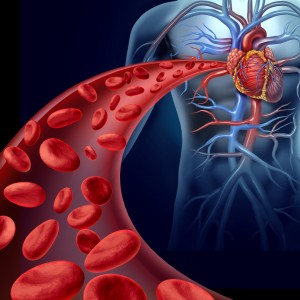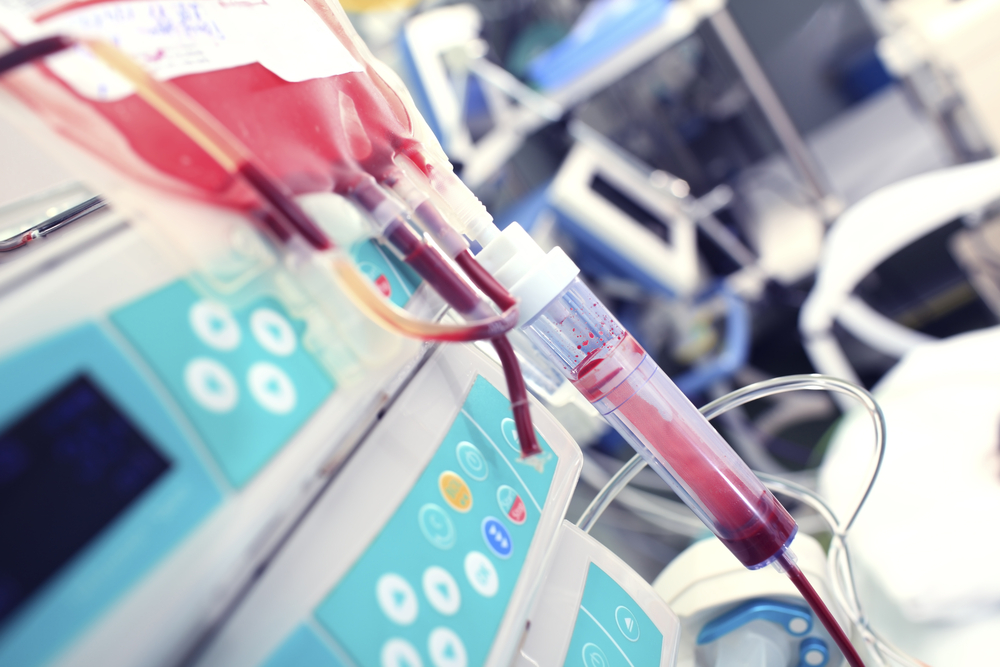 A new trial to assess the optimal threshold for haemoglobin level in blood transfusion after cardiac surgery was not conclusive. The study entitled “Liberal or Restrictive Transfusion after Cardiac Surgery” was published in the New England Journal of Medicine by University of Bristol researchers.
A new trial to assess the optimal threshold for haemoglobin level in blood transfusion after cardiac surgery was not conclusive. The study entitled “Liberal or Restrictive Transfusion after Cardiac Surgery” was published in the New England Journal of Medicine by University of Bristol researchers.
In the UK, 50% of all patients after cardiac surgery undergo a red blood cell transfusion, using around 10% of the nation’s blood supply. After cardiac surgery there is a high probability to receive a transfusion since blood loss and severe anaemia occur frequently after the surgery and transfusion is the standard procedure. Anaemia occurs due to blood loss and is measured by quantifying the red cell count or haemoglobin level, where a low level is predictive of transfusion.
The present trial was performed to understand when to give blood transfusions after heart surgery, i.e. to evaluate if transfusing at a low hemoglobin level was safer or more cost-effective as has been shown in other patient groups. The research team conducted a multicenter, parallel-group trial in which patients from 17 centers in the United Kingdom older than 16 years of age were submitted to non-emergency cardiac surgery. After surgery, patients with a hemoglobin level lower than 9 g per deciliter (low haemoglobin) were randomly distributed to a restrictive transfusion threshold (hemoglobin level <7.5 g per deciliter) or a liberal transfusion threshold (hemoglobin level <9 g per deciliter). The first outcome was a severe infection (sepsis or wound infection) or an ischemic episode within 3 months after randomization, since after blood transfusions patients suffer increased complications. This led to the hypothesis that preventing transfusions would improve clinical outcomes.
The researchers found that the incidence of a blood transfusion in the ‘high’ and ‘low’ patient group was 92% and 53%, respectively. The primary outcome in the ‘low’ and ‘high’ group was a non-significant 35% and 33% , while the ‘low’ group (4.2%) had a higher number of deaths when compared to the ‘high’ group (2.6%). Despite its importance, it is difficult to draw a conclusion from these last results, since the trial was not designed to compare differences in the number of deaths.
A new hypothesis was formulated whereby a ‘high’ or liberal threshold of haemoglobin level after cardiac surgery improves blood transfusion, challenging the current guidelines and health policy.
Study author Professor Gavin Murphy said in a news release “Existing national and international transfusion guidelines recommend that blood transfusions only be given to patients who develop very low haemoglobin concentrations. We have shown that this strategy may increase the number of deaths in cardiac surgery. This was the largest randomized trial ever conducted in the UK in a surgical or cardiac surgery population.”
Sarah Wordsworth, Associate Professor of Health Economics in the Nuffield Department of Population Health at the University of Oxford, added that although the “high” group had more blood transfusions, it did not experience increased costs when compared to the “low” group.
“The results showed that it may actually reduce deaths in the weeks following surgery, although more research is needed to determine if this was a direct consequence of their transfusion or something else,” concluded Professor Peter Weissberg, Medical Director at the British Heart Foundation (BHF).


